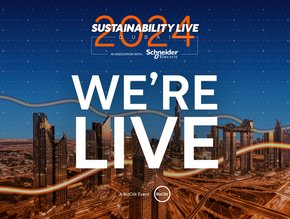How is New US Law Pushing Sustainability in Manufacturing?

The US government – the world's largest purchaser – is revamping federal procurement, prioritising sustainable practices and American-made goods. Under the Sustainable Products and Services procurement final rule, existing standards are getting a makeover to revitalise domestic manufacturing while reducing environmental impact.
“For more than 50 years, the federal government has played a leading role in promoting innovation, creating jobs, reducing emissions, and shaping markets through its sustainable purchasing requirements,” says Christine Harada, Office of Federal Procurement Policy Senior Advisor.
“We are proud to continue to be a global leader in sustainable purchasing and meet President Biden’s ambition of net-zero emissions from federal procurement by 2050.”
Under the Biden-Harris administration, federal agencies are now directed to maximise the use of sustainable products and services. This directive strengthens existing requirements, urging federal buyers to prioritise water-efficient and safer products certified by EPA programmes like WaterSense and safer choices.
Notably, the rule also mandates analysis of perfluoroalkyl or polyfluoroalkyl (PFAS) chemicals, dubbed 'forever chemicals,' aligning with President Biden's federal Sustainability Plan for net-zero emissions by 2050.
“At GSA, we’ve seen first hand how the federal government’s buying power can catalyse job creation and accelerate progress toward the clean energy future,” says GSA Administrator, Robin Carnahan.
“This builds on the progress the Biden-Harris Administration has made to lead by example and realise the triple win of good jobs, taxpayer savings through reduced energy costs, and a healthier planet.”
Legislation for sustainability in procurement
The rule aligns federal agencies with the Environmental Protection Agency (EPA)'s Recommendations of Specifications, Standards, and Ecolabels for federal Purchasing.
These recommendations, effective from October 2023, encompass over 40 environmental standards and ecolabels across various product and service categories.
They aid buyers in identifying American-made products and services addressing environmental and human health concerns, such as energy and water efficiency, chemical safety, and plastic reduction.
Moving forward, the EPA will continue assessing labels and standards for inclusion in its recommendations, leveraging input from stakeholders and the public. This collaborative effort ensures a comprehensive approach to sustainable procurement practices.
“President Biden has tasked federal agencies with leading by example toward a more sustainable future, including by buying products that are safer for the environment and for communities,” adds Brenda Mallory, Chair of the White House Council on Environmental Quality.

“As part of President Biden’s Investing in America agenda to support US manufacturing and climate action, these new standards will help federal agencies prioritise the purchase of sustainable products and services certified to EPA-recommended standards and ecolabels that create good-paying jobs right here at home.”
Driving change and savings
The federal government's significant annual spending, exceeding $700 billion, is now directed towards sustainable products and services. This shift aims to slash emissions linked to the federal supply chain, which surpass those from operating government buildings and vehicles combined.
“As the world’s largest buyer, we have a responsibility to lead by example and accelerate the move toward buying clean,” says Jason Miller, Deputy Director for Management at the Office of Management and Budget.
“As part of the Biden-Harris administration’s whole-of-government approach to achieve a net-zero emissions economy, this rule demonstrates that federal procurement is a catalyst for simultaneously promoting economy and efficiency, and environmental stewardship.”
Over the decades, the federal government has championed sustainability, catalysing innovation, job creation, and emission reduction through its purchasing requirements. Notably, in 2021 alone, purchasing over 43 million sustainable electronics products saved taxpayers around $2 billion in current and future energy costs. This demonstrates the tangible benefits of prioritising sustainability in procurement practices, setting a powerful example for organisations worldwide.
“Under President Biden’s leadership, EPA is proud to implement this rule to reinforce our unwavering commitment to sustainability, American industry, and to protecting communities from pollution,” adds EPA Administrator Michael S. Regan.
“Through these enhanced purchasing standards, we are advancing the Administration’s environmental objectives while supporting US manufacturing and generating significant economic benefits across the country. This rule is a testament to our collective dedication to using the power of federal procurement to forge a cleaner, more sustainable future.”
******
Make sure you check out the latest edition of Sustainability Magazine and also sign up to our global conference series - Sustainability LIVE 2024
******
Sustainability Magazine is a BizClik brand
******






